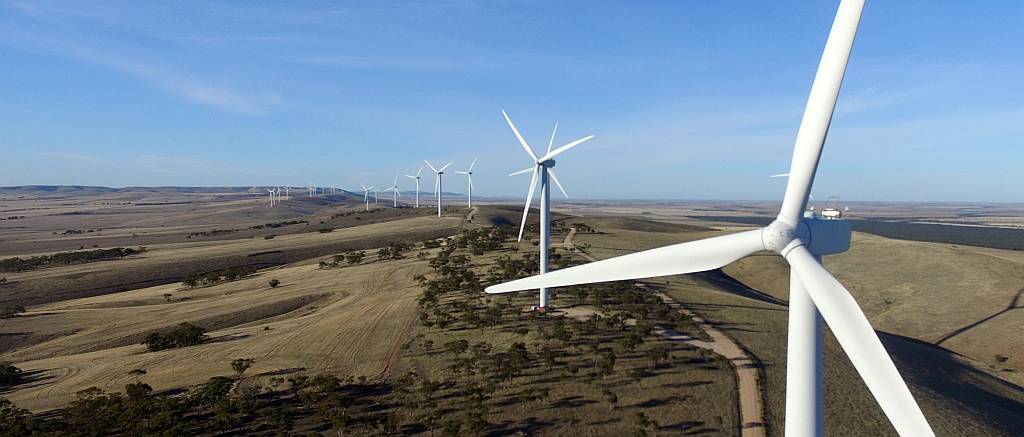Science is about the application of the scientific method.
A description of the scientific method goes something like this:
- An observation, or more likely a series of observations, are made;
- A hypothesis is produced, that, supposing it to be true,
would explain the observation(s);
- Experiments are devised to test the hypothesis;
- If the experiments fail to disprove the hypothesis then it can
become a scientific theory.
Note that the theory need not be proven (usually it cannot be proven),
but every test that it passes increases its standing.
A hypothesis that cannot be tested is considered to be of dubious value.
The scientific method is also explained in
Wikipedia.
"Science is not a set of beliefs, it is a
method" (anon).
| |
Learned, or scientific, journals
Learned journals are usually published by scientific societies, for example
a learned journal on cosmology would be published by some group of
cosmologists, most of whom would be qualified in, and practicing cosmology.
The publishers send copies of articles (usually called 'papers') to
referees (specialists in the same scientific field, peers) for comment.
If the referees find that the logic behind the theory is faulty, or there
are serious flaws in the methods of collecting evidence, or if the work is
not original, he/she will pass his reservations back to the publisher.
The publisher may then recommend that the author does more work, or simply
refuse to publish the paper.
If the referee's reports are favourable, the paper will probably be
published.
Over a period of time scientific journals build up 'prestige' if they
publish good science; if they publish dubious work they loose prestige.
Also see
Impact factor.
|
|
A scientific theory is built up over a period of time.
Most theories would begin their public life by being published, together with evidence supporting the theory, in a 'learned journal'.
It would be expected that the author of the theory would have studied previous research relevant to his theory, if any.
Anyone who believes the published theory is wrong can publish a refutation; an explanation of evidence that indicates the fallacy of the theory.
If a theory is important, and is not refuted over a period of time, the original paper will be referred to (referenced) by other scientists in the same or other learned journals.
The number of these references provides a measure of the importance of and acceptance of the theory among the community of scientists in the particular specialty.
Theories are not all that are published in scientific journals.
Anything of interest to the scientists whose field is dealt with by the particular journal may be published; for example Dr Naomi Oreskes, of the University of California in San Diego, published a study that she did showing that there is an overwhelming consensus in the scientific publications on the human cause for climate change.
Science has made enormous progress
Science has shown us how the World and the Universe works, what the Universe is made of, even
where all the elements that make up the Universe were produced.
Yet ignorance in the modern world is widespread, profound, and very much on public display.
Thousands of papers relating to climate change have been published in relevant learned journals (see
Science in practice).
Of those that relate climate change to human activities, very few or none provide evidence that human activities are not the primary cause of the climate change that we are experiencing now, most show strong links between the two.
I refer in particular to the published study into the
consensus on climate change among relevant scientists mentioned above.
From my reading of the popular science journal, Scientific American (to which I have subscribed for about 35 years), I can say that it shows a similar preponderance of articles relating climate change to human activities; while it does (correctly) give consideration to some of the more reasonable of the contrary opinion.
Of course not all supposedly scientific journals are equal.
You might think that the journal published by an organisation named The Oregon Institute of Science and Medicine (OISM) would be a respectable learned journal.
(The head of OISM is one of the main organisers of the "31 072 American Scientists" who deny climate change.)
If you look into the OISM and its climate change publication you find that it is in fact of very dubious credibility.
The popular press and the commercial media are very different to the prestigious scientific press; they are much less concerned with fact than with sensation.
The latter is much more likely to sell newspapers than the former; some apparent expert who is willing to take up a view contrary to that accepted by the relevant scientific community makes good press.
In the period from about 2010 to 2014 lazy, sensation seeking journalists were largely responsible for spreading the false belief that wind turbines cause illness.
I have recently been shocked at the depth of the ignorance about climate change science in the parliamentary Liberal Party of Australia; it is an indictment on Australia and the Australian voters (who voted these ignoramuses into Parliament).
It was the revelation of this ignorance on the ABC Four Corners program of November 9th 2009 that provoked me to write this page.
|
|

| | Sign outside shop in Denmark, Western Australia
|
|
"The essence of science is skepticism. The essence of religion is faith" (anonymous).
My page on threats to our global civilisation
lists many things about our present society that are unsustainable.
Science has discovered these threats; in many cases science has, or can, show us how we can eliminate, or at least minimise, these threats.
However, instead of recognising the threats and tackling them head-on,
probably the great majority of people are either ignorant of the threats
or are so hung-up on their irrational belief systems that they don't see the dire need for action.
To judge by the books that are on sale in shops, the advertising in the popular media, and the articles published in the popular media, there are far more people who base their beliefs on something other than evidence than those who look at the world rationally.
The rise of 'new age' beliefs (things like the magical properties of crystals and pyramids; non-evidence-based therapies such as homoeopathy, reflexology,
magnetic therapy and even 'cranio-sacral balancing' and 'sacred geometry grid healing'; and then the old chestnut of astrology) in comparison to science in a time when it is essential that we look
rationally for cures for the World's ills, is hugely concerning.
Science has shown us what the stars are made of and how the Universe works,
but people seem to prefer to believe in things lacking in rational backing,
religion and
creation 'science' come to mind.
| |
|
|
WA Liberal Party, 2011
About 12th August 2011 the Western Australian branch of the Liberal Party
passed a motion, by a large majority, calling for a royal commission into
the science of climate change.
The science is settled, has been settled for years.
Is it any wonder that Australia's transition to renewable energy is slow
with ignorance like this in one of the major political parties?
Should the WA Government be stupid enough to take this up one would have to
wonder where they would find a judge sufficiently dim to want to
run such a royal commission.
It must have been an embarrassing day for many of the faculty and students of Western Australia's
Notre Dame University when the woman who was previously their vice-chancellor exposed her gross ignorance of climate science.
Professor
Celia Hammond resigned her vice-chancellorship to take up the Liberal candidacy for the federal seat of Curtin.
A page on ignorance would not be complete without mentioning Craig Kelly, Liberal MP and outspoken
climate science denier.
Any more than a mention would be giving him more attention than he deserves.
|
|
In November 2009 it became public that many members of the Australian Parliamentary
Liberal Party believed (or claimed to believe) that humanity had nothing to do with climate change.
The National Party Senators had previously made it known that they were climate change deniers.
See
FailAust.
(The Leader of the Federal Parliamentary Opposition in 2010,
Tony Abbott, has said that "Climate Change is crap").
That many (although a minority, I believe) of the Australian people are ignorant of the facts of climate change is more understandable, they do not have ready access to well-informed advice and they are receiving mixed messages from the commercial media, but for federal parliamentarians in a Western Democracy, with easy access to advice from experts in the climate science field, to be so abysmally ignorant is inexcusable.
Or could it be that these parliamentarians only claim to be climate change skeptics so that they can justify their continued support of the fossil fuel industries? Is their apparent ignorance intentional?
Is it believable that they could be so corrupt?
Is it any more believable that they could be so ignorant?
(I have held elsewhere that knowingly lying about climate change in order to oppose renewable energy developments or in support of fossil fuels is the greatest crime in the history of humanity.
Warren Entsch was appointed Special Envoy for the Great Barrier Reef in the re-elected Morrison Government in late May 2019.
He claimed that "the reef didn't need saving" and refused to accept that climate change was the greatest threat to the reef. This is totally at odds with what the world's climate scientists are telling us.
He went on to complain about adults "coaching" young people who quite rightly expressed deep concern for their, and the planet's, future. He said of the adults "They're frightening the living hell out of kids. It's like child abuse and I think they should be held accountable". If there was any justice in this world people like Warren Entsch would be held
accountable.
The
Morrison Government seems hell-bent on destroying the future that these kids will live through.
The ignorance is not confined to Liberal and National parties
Steve Fielding of the Family First Party has also 'come out' as a Climate
Change Skeptic.
He has called for a Royal Commission into Climate Change; why doesn't he
simply seek the advice of climate change scientists rather than listening
to geologists who have strong links to the mining industry?
It seems that Steve Fielding has been listening to Ian Plimer, Professor of
Mining Geology, University of Adelaide.
(Plimer's arguments have been dealt with in
Plimer versus Monbiot; where George Monbiot points out some of the
many faults in Ian Plimer's book, 'Heaven and Earth: Global Warming –
The Missing Science'.)
In Fielding's favour(?), his ignorance is real, not perhaps pretended as in
the case of the Liberal and National Party climate change skeptics.
| |
This section added
2020/01/15
|
|
At the time of writing, early 2020, terrible fires had burned out almost a half of Kangaroo Island, which is off the south coast of the state of South Australia.
This followed the year 2019 which was
Australia's hottest and driest year on record.
There were
unprecedented fires in a number of Australian states and a terrible drought.
Climate scientists had predicted for decades that climate change would result in
more intense fires, longer fire danger seasons and more frequent and more severe droughts.
Australia's volunteer fire leaders had openly discussed the link between the fires and climate change.
In spite of all this, Kangaroo Island's Mayor, Michael Pengilly, called ex-US President Barack Obama "so, so foolish" for linking the Kangaroo Island fires to climate change!
What Mr Obama had tweeted was:
"The catastrophic fires in Australia are the latest example of the very real and very urgent consequences of climate change. It’s on us to stay focused and protect the one planet we’ve got for the next generation"
Quoting an ABC
article written by Eugene Boisvert:
Kangaroo Island Mayor Michael Pengilly responded to a tweet by Barack Obama by saying climate change was not connected with the bushfire that has burnt almost half of the 4,400-square-kilometre island.
"So, so foolish in your pronouncement. My respect for you has totally evaporated. Pathetic," Mr Pengilly said of the former president on Twitter.
The only thing good about this airing of ignorance is that it suggests that Pengilly's over-reaction would have been brought about by him feeling threatened by the many better informed people telling him that the fires are related to climate change.
Unfortunately this sort of denialism is still not uncommon in Australia.
Mr Pengilly was a state Liberal MP from 2006 to 2018; climate science denialism is widespread in the
Australian Liberal Party.
| |
This section added
2024/03/03
|
|
In February 2024 Andrew Hastie, a Liberal Party member of the Australian parliament, produced a
petition opposing a zone in the Indian Ocean off the Western Australian coast that the government wanted to see developed for offshore wind farms.
While the wording on the petition itself was fairly innocuous, the preface to it contained many falsehoods and exaggerations.
Mr Hastie is an intelligent man. He cannot have believed the statements that he wrote in that preface.
It seemed to be a case of intentional ignorance: a pretence to believe things that are not really believed in order to exploit the naïvety or ignorance of others. I'm sure that Mr Hastie is not the only person to indulge in intentional ignorance.
We don't need to tolerate intentional ignorance in our politicians
We can replace dishonest politicians like Mr Hastie with honest, principled
community independent politicians.


